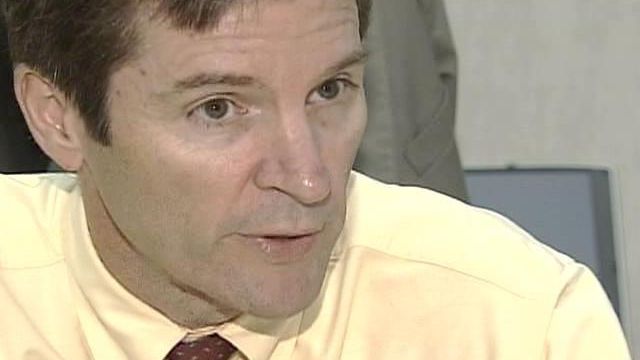Legislation Could Open Locked Doors of Grand Jury Process
Bills in the House and Senate would establish investigative grand juries in some cases, especially bribery, political corruption and murder.
Posted — UpdatedThere is no way, however, to go back and review how the grand jury got to its conclusion. There is no record of who said what.
A push at the General Assembly could change that in some cases, especially bribery, political corruption and murder.
It would bring a change in what is now a process wrapped in secrecy.
Even after grand jurors finish their six- or 12-month terms of service, they cannot legally talk about the evidence or information they reviewed in cases.
In April 2006, defense attorney Joe Cheshire used the indictments of the Duke lacrosse players, one of whom he represented, to bring attention to the grand jury process.
"A grand jury would indict a ham sandwich for the death of a pig," Cheshire told WRAL reporter Amanda Lamb then.
That's because a grand jury of 18 ordinary citizens hears only the prosecutor's side of the story.
They are sworn to secrecy and they meet behind closed doors.
"It's not a balanced perspective by any means," argues Raleigh defense attorney Robert Nunley. “There's no recording of what was said to that grand jury."
Consider the case of 18-year-old Peyton Strickland, who grew up in Durham.
He was gunned down while New Hanover County sheriff’s deputies were trying to serve him with a robbery warrant at his apartment in Wilmington, where he went to UNC.
The bullets went through a door. A grand jury returned a true bill of indictment against Deputy Christopher Long for second-degree murder, but after Long was arraigned and the case was on the news, the grand jury foreman contacted the courthouse to say the paperwork had been marked incorrectly.
The grand jury said it had not mean to indict the deputy.
Phone conversations with grand jurors, who spoke to WRAL off the record, indicate they were confused about their authority and whether they could indict on a lesser charge.
There’s no way, however, to review how a grand jury said it mistakenly indicted a deputy.
"I think it needs modernizing," Wake County District Attorney Colon Willoughby said of the process.
"I think it's a very tough assignment. We don't give them (grand jurors) any training or background, and it probably isn't fair to them," Willoughby added.
• Credits
Copyright 2024 by Capitol Broadcasting Company. All rights reserved. This material may not be published, broadcast, rewritten or redistributed.





